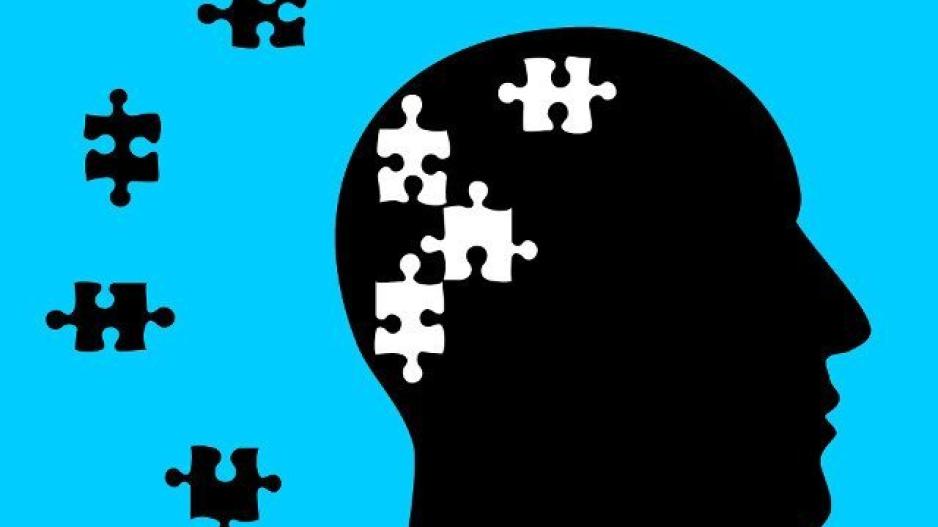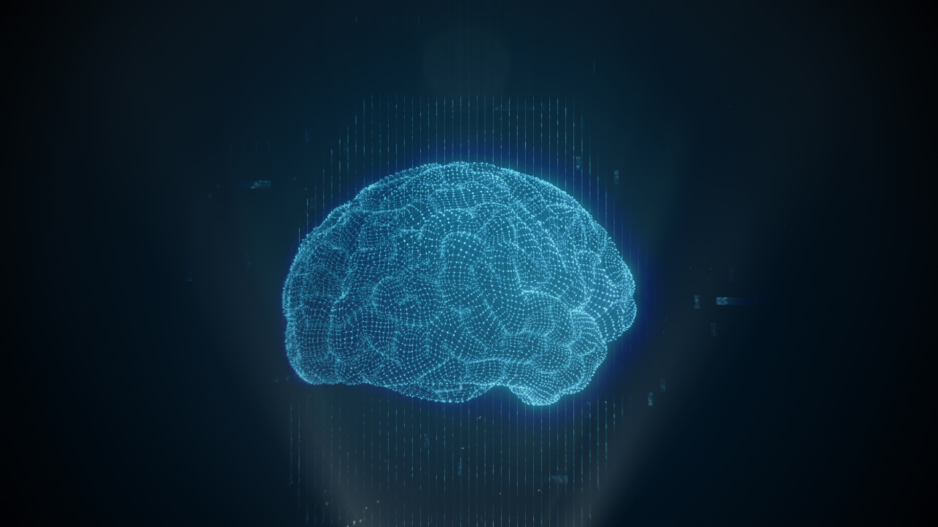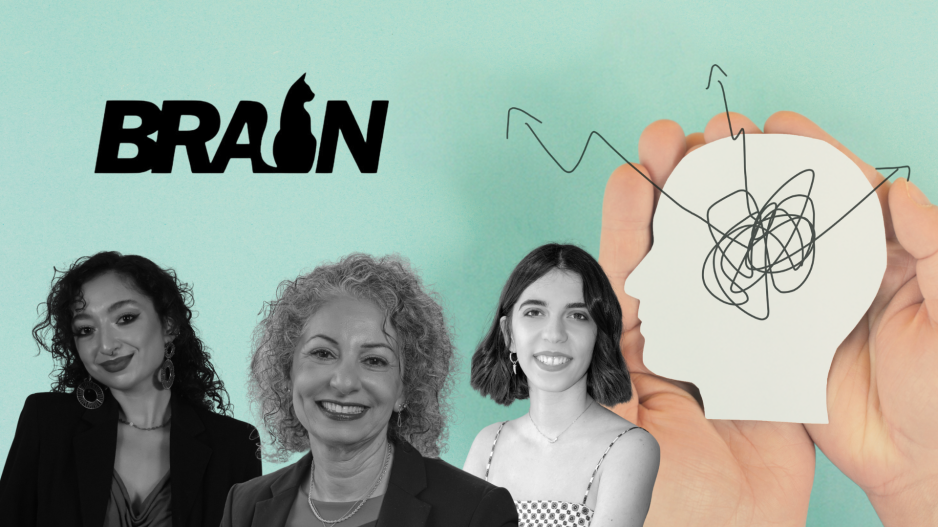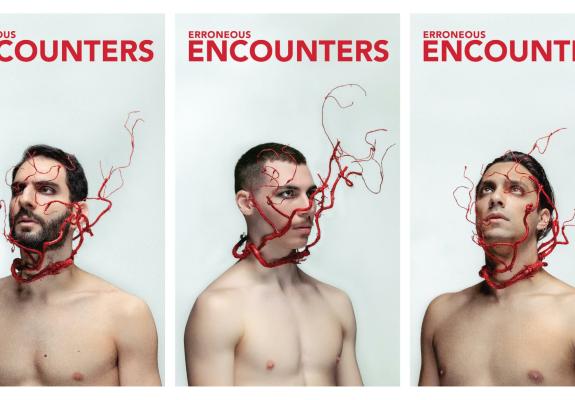The CAT-BRAIN Story: Bringing AI-Powered Cognitive Rehabilitation to Life
The Trio Behind the Project Talks to FastForward About Cognitive Rehabilitation, Leveraging and Integrating AI, Their Beta Testing Phase, and Positioning CAT-BRAIN in the Market
CAT-BRAIN is a platform designed to combat cognitive decline and promote brain health through innovative rehabilitation methods. Developed by a team of researchers and clinicians at the University of Cyprus, it leverages machine learning and the validated Categorisation Programme (CP) to provide personalized and dynamic cognitive therapy. With its interactive therapy platform and structured exercises, CAT-BRAIN offers therapists a powerful tool to deliver evidence-based cognitive rehabilitation, aiming to improve patient outcomes and foster a more inclusive society.
In this interview, the trio behind CAT-BRAIN—Professor Fofi Constantinidou, Ioulia Solomou, and Nicole Christodoulides—discuss the journey from laboratory to market, highlighting the critical need for integrated cognitive rehabilitation solutions. The team also discusses their expectations for the beta testing phase, emphasizing the importance of feedback from speech pathologists and clinical psychologists. The interview concludes with a look at future expansion plans, including strategic partnerships and ongoing improvements to the AI algorithms, as well as the significant role Cyprus Seeds played in transforming CAT-BRAIN from concept to reality.

The creation of CAT-BRAIN wasn't sparked by a moment of inspiration, but rather it emerged as an opportunity for us to transition our research innovations from the confines of the laboratory into the broader world.
This initiative stems from years of meticulous research and clinical trials aimed at validating the efficacy and effectiveness of our cognitive rehabilitation interventions.
Recognizing the potential to make a tangible difference, the development of CAT-BRAIN was a deliberate step towards addressing existing gaps in cognitive therapy practices.
Traditional approaches of cognitive rehabilitation have often been criticised as being fragmented or lacking theoretical grounding
Traditional approaches of cognitive rehabilitation have often been criticised as being fragmented or lacking theoretical grounding. They often follow a “one size fits all” perspective, leading to a piecemeal approach to treatment and numerous challenges for both patients and therapists. Consequently, the traditional strategy has limited the ability of clinicians and of the healthcare system to provide comprehensive care, underscoring the urgent need for a more integrated and evidence-based approach.
Patients not only deserve but also require therapies grounded in robust research to maximize rehabilitation outcomes.
CAT-BRAIN addresses these challenges by introducing a digital and structured system to retrain the human brain, designed to offer clear guidance for therapists, thereby enhancing the delivery of cognitive rehabilitation. Grounded on contemporary theory on how the human brain processes and learns information, it encapsulates the necessity for evidence-based care, leveraging our research to provide a solution that is both efficient and capable of meeting the increasing demand for cognitive therapy. By bridging the gap between current healthcare capacities and the growing need for cognitive rehabilitation, CAT-BRAIN represents a pivotal advancement in the field, embodying our commitment to improving patient care through research-based interventions.
At CAT-BRAIN, we harness the power of AI and machine learning to transform cognitive rehabilitation into a personalized and dynamic process. Imagine AI as an ever-present, observant coach that meticulously tracks the progress of patients throughout their therapy sessions. This intelligent system pays special attention to the errors patients make, not just to identify them but to understand their underlying causes. By analyzing these mistakes, our AI crafts tailored homework assignments specifically designed to address the areas where each patient struggles the most. This ensures that the therapy is not only focused on their immediate needs but also evolves with their progress.
Imagine AI as an ever-present, observant coach that meticulously tracks the progress of patients throughout their therapy sessions
Furthermore, our platform leverages real-time feedback during exercises, acting much like a live coach who guides, corrects, and encourages patients every step of the way. This immediate, personalized feedback loop not only helps in correcting mistakes as they occur but also reinforces positive practices, ensuring a more efficient learning and rehabilitation process.
In the beta testing phase of CAT-BRAIN, our primary expectation is to collect valuable data that will serve as the foundation for the development and refinement of our AI algorithms and the user interface of our platform.
This phase is crucial as it represents the initial real-world application of our platform, providing us with insights that are essential for tailoring our technology to meet the specific needs of cognitive rehabilitation therapy. We need to make sure our platform is user friendly for both the therapists and the patients.
Given that our AI algorithms are in their developmental stage, the feedback and data collected during this phase will directly inform their creation, ensuring that they are both effective and efficient in facilitating personalized rehabilitation plans.
We are particularly keen on receiving feedback from professionals such as speech-language pathologists, occupational therapists and psychologists (clinical, rehabilitation) and neuropsychologists who play a pivotal role in cognitive rehabilitation. Their insights into the platform's interface and overall usefulness are invaluable. We hope to gather detailed observations regarding the ease of use, but also, we are looking for constructive feedback that can guide us in refining the platform’s functionality and interface. Feedback on how the platform integrates into daily therapy sessions, its impact on patient engagement, and its effectiveness in supporting existing therapeutic goals will be particularly beneficial.
Note that we have started collecting possible beta launch users via this link.
We are also active on LinkedIn where we share information about our platform, useful facts and urge people to sign up for the beta launch.
As we look to the future beyond the beta launch of CAT-BRAIN, our aspirations aim at enriching the platform's capabilities and reach. At the core of our strategy is the plan to extend CAT-BRAIN's functionalities to cover a more extensive range of cognitive therapy aspects, including the integration of cognitive assessments directly within the platform. This enhancement will enable a more seamless evaluation of patient progress and therapy effectiveness, facilitating a comprehensive approach to cognitive rehabilitation.
In parallel, a significant focus will be placed on the continuous refinement of our AI algorithms. The goal here is not just improvement for the sake of advancement but to make our AI more intuitive and effective in creating personalized rehabilitation plans. This involves leveraging the latest in machine learning advancements to ensure that CAT-BRAIN remains at the forefront of technology-driven cognitive therapy solutions, capable of dynamically adapting to each user's unique therapy journey.
We are also setting our sights on forming strategic partnerships with academic institutions, research organizations, and technology companies
Understanding the critical role of collaboration in healthcare, we are also setting our sights on forming strategic partnerships with academic institutions, research organizations, and technology companies. These collaborations aim to enhance CAT-BRAIN's scientific foundation, expand its therapeutic applications, and ensure its seamless integration with other digital health tools and platforms.
Together, these plans form a cohesive vision for the future of CAT-BRAIN, characterized by technological innovation, comprehensive therapy solutions, and collaborative growth.
We envision CAT-BRAIN significantly enhancing the quality of life for patients experiencing cognitive decline by offering them effective cognitive rehabilitation. The core of our project is not just about improving cognitive functions but also about instilling confidence and independence in patients' daily lives. For instance, consider the case of a patient recovering from a traumatic brain injury (TBI). After completing the CAT-BRAIN program, this patient felt a renewed sense of confidence and was motivated to re-enter the job market. This transformation underscores the profound impact of tailored cognitive rehabilitation on the individual's life, beyond just the clinical improvements. By empowering patients to regain control over their cognitive functions, CAT-BRAIN aims to open new doors for them, enabling a return to work, improved social interactions, and an overall better quality of life.
To effectively position CAT-BRAIN in the market, it will be marketed as a cognitive rehabilitation platform that integrates digital technology with validated rehabilitation methods. As a comprehensive tool for therapists, CAT-BRAIN enhances clinical practice.
We plan to forge partnerships with healthcare providers in Cyprus to integrate CAT-BRAIN into the evolving healthcare framework, ensuring broad service distribution
Our primary markets include Cyprus, which is transitioning towards a unified healthcare model, and the established yet growing cognitive rehabilitation sectors in the United States, Ireland and the United Kingdom. Additional target markets include Greece, Canada, Australia and New Zealand. As the CAT-BRAIN platform expands into other languages we will target additional markets.
-
Market Positioning: In Cyprus, CAT-BRAIN will address the demand for accessible cognitive therapy, targeting not only established healthcare providers but also engaging younger professionals who might benefit from our intuitive SaaS platform.
-
In the US, UK, and Ireland, CAT-BRAIN will be marketed as a superior solution, highlighting its research-backed capabilities and technological innovations compared to competitors like RehaCom and Rehametrics.
-
-
Competitive Advantage: Distinguished by two decades of foundational research, CAT-BRAIN features a user-friendly, web-based interface enhanced with real-time feedback, progress tracking, and adaptive machine learning algorithms. These technologies foster a more engaging and effective user experience.
-
Strategies for Widespread Adoption: We plan to forge partnerships with healthcare providers in Cyprus to integrate CAT-BRAIN into the evolving healthcare framework, ensuring broad service distribution. In the US, UK and Ireland, targeted digital marketing campaigns on LinkedIn, featuring paid targeted ads, will be crucial. These efforts will be supported by a dynamic community-building strategy involving regular posts, videos, and interactive content that showcases CAT-BRAIN’s advantages.
-
Engagement and Education: Post-signup, we will actively engage therapists through regular Q&A sessions and webinars, which will not only explore the platform’s features but also support ongoing education to enhance user proficiency and satisfaction.
-
Pricing and Security: CAT-BRAIN will be competitively priced with flexible payment options to ensure accessibility for various healthcare settings.
A strong commitment to data security and privacy, adhering to regional regulations, will reinforce trust among users. These strategies aim not just to introduce CAT-BRAIN into the market but to ensure its enduring success and influence in global cognitive rehabilitation practices.
CAT-BRAIN to life. Among the most significant milestones in this partnership was the transition from concept to reality—transforming our research innovation into a viable product ready for the market. Cyprus Seeds played a pivotal role in this journey by providing us with exceptional mentorship, comprehensive workshops, and extensive networking opportunities.
The Cyprus Seeds program fills a significant void in the current entrepreneurship environment in Cyprus
Cyprus Seeds works with research teams whose expertise is rooted deeply in science and with limited exposure to the many aspects of technology transfer. Cyprus Seeds bridged this gap by guiding us through the complexities of this transformation. For example, we benefited from learning about commercialization, from understanding market dynamics to learning how to effectively communicate our vision to potential investors and partners. The mentorship offered by Cyprus Seeds has been invaluable, not just in practical terms but also in building our confidence to navigate the business landscape.
The Cyprus Seeds program fills a significant void in the current entrepreneurship environment in Cyprus. For our team, the collaboration has been a transformative experience, and we highly recommend Cyprus Seeds to any research team looking to make a similar leap. The partnership has not only advanced CAT-BRAIN but has also enriched our team with a deeper understanding and appreciation for the intersection of science and business.







